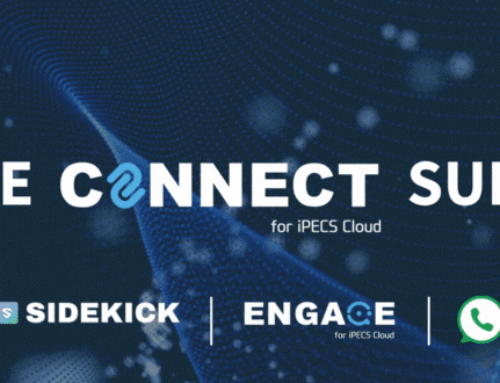Businesses that handle card payments, including over the phone payments, should have data security at the top of the priority list.
Businesses that handle card payments, including over the phone payments, should have data security at the top of the priority list.
In today’s digital-focused world, we’ve become reliant on technology, and this extends to card payments. As a convenient way for people to make purchases, and with the introduction of mobile payment services such as Apple Pay, now more than ever, businesses who process card payments must prioritise the security of sensitive customer data. This is increasingly important for card payments taken over the phone.
This is where PCI compliance comes in. We’re going to delve into the role of PCI DSS compliance, the importance for anyone processing card payments over the phone, and how it benefits both resellers and businesses.
What is PCI DSS Compliance?
It is the responsibility of all businesses to make sure that customer data is being handled correctly and safely. Payment Card Industry Data Security Standard (PCI DSS) is a set of industry regulatory standards that businesses must follow in order to keep customer card data safe and secure. PCI was first introduced in 2004, and updates have been issued for new versions as the landscape has evolved.
If a business processes or stores card information, they are required to follow PCI compliance to create a secure environment for customer data. As cybercrime continues to increase, credit card fraud remains a common threat. When cybercriminals get their hands on sensitive financial data, they’re able to rapidly cause financial damage to individuals, and also to businesses.
The PCI Checklist
PCI regulation covers areas such as network security, encryption, access control, and regular monitoring. The 12 key requirements are:
*PCI DSS Quick Reference Guide, PCI Security Standards Council
Who needs PCI compliance and what are the benefits?
From small corner shops to large contact centres, all business that processes card payments need to comply with PCI DSS. It’s essential that businesses safeguard any credit card payment data or sensitive information.
Customer’s will be expecting a level of protection and will be assuming industry standards have been met, this expectation applies to all businesses with no exceptions, and is especially true for businesses handling payments over the phone.
Having compliance certification shows a customer that security is taken seriously, providing them reassurance, and maintaining trust between parties. And don’t overlook the competitive advantage; PCI certification helps businesses stand out in the market as a trustworthy organisation that’s committed to customer security. This puts them ahead both in customer relationships and avoiding hefty penalties from breached data.
All the benefits of PCI compliance for customers can help iPECS Cloud resellers, presenting opportunities to sell additional services and increase revenue.
Deliver compliance with PCI for iPECS Cloud
If you’re wondering if there’s a way to help customers stay compliant with PCI regulation through their iPECS Cloud phone system, then we have the solution: PCI for iPECS Cloud.
From the get-go, PCI for iPECS Cloud will ensure that all customer data is handled, stored, and transferred safely, making sure businesses are compliant with PCI requirements. Find out more about PCI for iPECS Cloud.
The benefits for businesses:
- Staff can quickly and easily take card payments over the phone in the knowledge that the service is secure and complies with all PCI regulations.
- There is no risk of potential fines or misplaced customer data. All customer card details are hidden from staff who are taking payments over the phone.
- As an ongoing, low monthly charge, there are no OPEX implications, with often costly upfront charges running into £1000’s just to set up a PCI service up. iPECS PCI is based on the number of SIP channels consumed by a business, and there are no upfront charges, which means manageable and predictable monthly expenditure.
- Deploying iPECS PCI will help to alleviate the cost and headaches around maintaining PCI compliance for businesses. As PCI for iPECS Cloud is provided by a Tier-1 PCI accredited Service Provider, the annual requirements mean that businesses only need complete the SAQ-A self-assessment. That’s only 22 questions that need to be answered versus 386 that are required with the SAQ-D self-assessment.
The consequences of not adhering to PCI DSS
Failure to keep up with compliance or have the appropriate level of protection in place to keep customer data secure could result in heavy fines, reputational damage, or even legal ramifications.
For example, if a customer’s credit card information becomes compromised, the bank can pass any fines applied onto the business. As a secondary penalty, the bank can choose to close accounts.
Ultimately, if a business doesn’t uphold the strict PCI regulations, they’re risking not only losing their customer’s data, but risking trust and loyalty too. This can have lasting implications for organisations. By displaying compliance certification, organisations can provide essential reassurance and continued trust.
Next steps…
Though adhering to PCI compliance can feel daunting, with the threat of fines and legal ramifications for non-compliance a reality, it’s important to remember the positives for all parties. Businesses can stand out against competitors, prevent the financial impact of a data breach, sustain customer loyalty, and stay one step ahead of evolving cyber threats.
Moving forward, organisations will need to keep a close eye on their security processes, continuously assessing whether they meet the rigorous industry requirements.
From network protection to encryption, there’s a lot of boxes to tick when it comes to PCI compliance. It’s time to prioritise and normalise it as part of a wider security strategy. PCI for iPECS Cloud lets businesses handle over-the-phone card payments without the stress of PCI compliance, and better still, the service works with a large list of payment service providers including PayPal and Stripe.
Contact us today to discuss PCI compliance or to add PCI or iPECS Cloud to your organisation.





